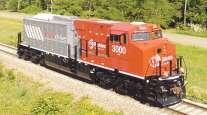Pennsylvania Proposes 6% Warehouse Tax

Pennsylvania is floating a tax on warehouse services as a way to help close the budget gap, a move critics say could threaten the fastest-growing sector of the Lehigh Valley economy and force customers of third-party logistics providers to relocate to neighboring states.
The proposal, first included in Gov. Tom Wolf’s budget proposal earlier this year in February, calls for the removal of the sales and use tax exemption for public warehousing and commercial storage businesses in Pennsylvania. By unlocking the 6% tax, the governor’s proposal projected an additional $153 million in revenue.
The tax idea lay dormant for months while the House, Senate and governor haggled over how to pay for the nearly $32 billion budget, but it has resurfaced in recent days, sparking renewed criticism from the International Warehouse Logistics Association and the Lehigh Valley Economic Development Corp.
In a message sent Sept. 29 to Lehigh Valley legislators, LVEDC President and CEO Don Cunningham wrote the tax threatens the area’s transportation and warehousing sector, which now employs 29,000 people in Lehigh and Northampton counties. The sector was responsible for $1.9 billion of the Lehigh Valley’s economic output last year, a 9.5% jump from 2015.
“This tax … could have an extremely negative effect on the fastest-growing sector of the Lehigh Valley economy,” Cunningham wrote. “We urge legislators in the Lehigh Valley delegation to strongly oppose a tax on warehouse services.”
The warehouse tax proposal is getting the most attention right now relative to other tax proposals, such as higher sales taxes on utilities and natural gas drillers, said Sen. Pat Browne, (R-Lehigh), chairman of the Senate Appropriations Committee. All business, with the exception of agriculture, would be required to pay the tax if it were to become law, he said.
Browne said various interest groups are opposed to a tax that would impact them, and he understands LVEDC’s objection. But, he said the state must raise new revenue or make $2 billion in cuts to balance its budget for the remainder of 2017-18 fiscal year and in 2018-19.
But the tax would heavily impact third-party logistics providers, or 3PLs, across the state, points out Steve DeHaan, president and CEO of IWLA, which serves warehouse logistics organizations.
DeHaan said the tax has come back into the discussion and could be reconsidered as soon as early next week by state leaders. But, DeHaan and IWLA maintain, the tax would result in a net loss to Pennsylvania, as warehousing and the economic activity it brings would shift to neighboring states.
For example, IWLA points out, a 2007 study by Michigan State University showed a 6% warehouse tax would have resulted in the loss of more than 7,000 warehouse and transportation jobs in Michigan, which has since repealed its warehouse tax. A similar study, done by Penn State University after being approached by IWLA, estimated the tax would result in the loss of 9,000 jobs in Pennsylvania.
Only a handful of states — the closest being West Virginia — impose sales and use taxes on warehouse services.
“We don’t see how this will materialize into a net gain for Pennsylvania,” DeHaan said. “In fact, we honestly believe it will be a net loss.”
But when Wolf’s budget proposal was unveiled in February, budget secretary Randy Albright billed the warehouse tax proposal as an act of fairness because homeowners pay a sales tax when they rent a storage locker but a business does not.
Businesses have not paid the 6% sales tax on storage since it was discontinued in 1991, said Steve Miskin, spokesman for the House Republican Caucus. “I pay 6%,” Miskin said. “Why should anybody be exempt from that?”
Wolf spokesman J.J. Abbott declined comment on the proposal, except to say budget “progress is being made after meetings between governor and leaders this week.”
While people might hear warehouse tax and think it’s a tax on Amazon, it’s not, DeHaan noted. What it boils down to, he said, is a 6% tax on the gross revenues of 3PLs. Several 3PLs have a presence in the Lehigh Valley, including XPO Logistics and Kane is Able Inc.
XPO ranks No. 3 on the Transport Topics Top 100 list of the largest North American for-hire carriers.
3PLs are essentially distributors for hire, helping manufacturers and retailers distribute goods throughout the country. So, the IWLA said, their business relies on customers signing one-to-five-year contracts, and 3PLs have no language in their contracts to recapture the 6% tax from their clients.
“Let’s say your company has 45 contracts totaling $40 million, your tax would be $2.4 million,” DeHaan said. “Nobody has that kind of money, and no customer is going to pony up on their contract 6%.”
Instead, he said, they would likely move their business to a lower-cost state, such as neighboring New Jersey, when their contract is up and they’re confronted with a 6% increase to keep doing business in Pennsylvania.
Kane is Able, which moves consumer goods at its 500,000-square-foot distribution center in Upper Macungie Township, already competes every day with New Jersey, noted Alex Stark, the company’s senior director of marketing. So a 6% tax, he said, would make it difficult for Kane is Able to convince its customers to continue using its services in Pennsylvania rather than bolting for New Jersey.
“People will leave,” Stark said. “They won’t leave tomorrow because there are contracts to uphold, but when it comes time to move distribution centers, they will just move out of Pennsylvania.”




